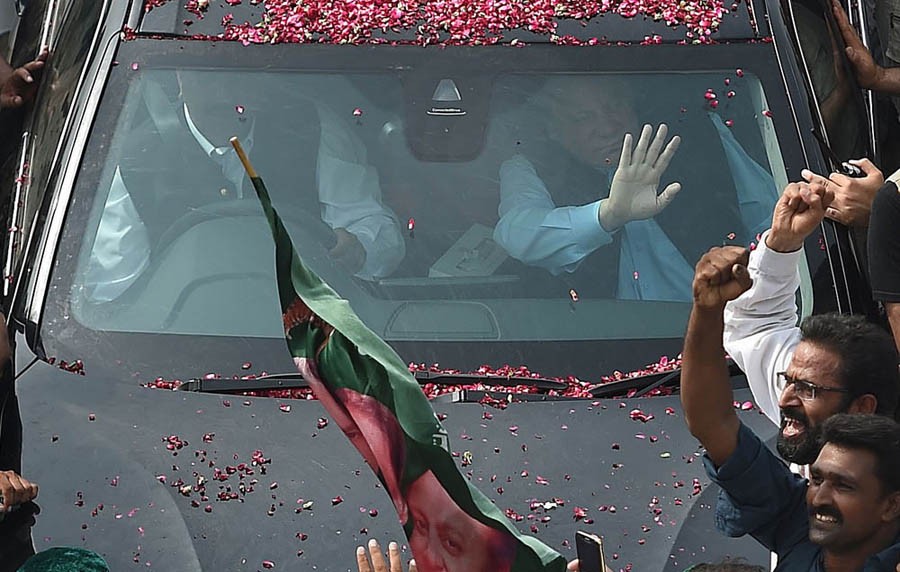
Political leaders’ disconnect with masses is a stumbling block in building a cohesive nation

There are several humorous quotes attributed to a late politician of Lahore and his funny lines are told and retold in drawing rooms by old buddies even today to enjoy the flavour of his political understanding. He was an innocent elderly man but was dragged into politics by irony of fate during the heydays of Pakistan People’s Party in Punjab.
There are stories, situations and follies attributed to the people who happen to be in public life all over the world and a similar case is of a popular politician who seemed to be wearing quizzical expressions on his face all the time.
Once he went out on hustings to a remote village and was told by his fandom that not a single political leader had ever visited them in the past. The popular leader fancied a golden opportunity to have better rapport with the audience, but not unable to find proper words, he puzzled them with innuendos that they were not a worthy stuff to be cared of, but even then a leader of his stature visited them in such a distant place.
The bottom line is that the leaders in Pakistan with egotistical approach had reasons to live in their glory, as they love to keep the common lot at a safe distance from them despite the fact they are extremely obsessed with popularity. They hobnob with the commoners only during elections days and never show up again until the next elections. This is not only the case with the so-called popular leaders, but also with many others who groom in a kind of isolated environment with little interaction with the multitude they want to rule. On another note, there are paid political workers who run along the expensive cars of the leaders.
Popularity is an unequivocal crown, as it is said, but there is a need to preserve a strong personal character with lifelong commitment to represent the masses if one desires to live in public life. Leaders have to prove their mettles with sincerity and hard work and not with money and power. In developed countries, politicians are judged by their welfare work, which they carry out for years before entering the political bout, but no such criteria or academic qualifications are required in case of Pakistan. The only and the principal qualification is money and that is all.
In the previous presidential elections of Iran, six candidates were in the run and five of them were PhDs, including Mehmood Ahmedinejad. Current Iranian President Hasan Rouhani is also PhD.
In Pakistan, it shook the power bases of traditional politics when condition of graduation was imposed on the candidates of parliamentary elections. People are well aware of the ensuing litigation between rivals after the elections as dozens of petitions were filed in courts challenging the credentials of the elected members. Some of the members produced fake graduation degrees before the election commissioner and an MPA brought a degree from an unrecognised religious institution, which had been closed long ago.
At the end, politicians could no longer tolerate the graduation thing and manoeuvered to avert the condition on the ground that it infringed upon their right to contest the elections. An argument that Pakistan had a poor literacy rate and the condition of graduation should be lifted was the best on their side. No one understands that there is a specific employment criterion even in the selection process of the lower staff of a government department, but for those who have to run the country needed no academic qualifications.
This has been the state of political affairs in the country for the last 70 years while an element of sincerity is visibly missing in the whole political business. Every nation has corrupt and inefficient politicians to some extent as not all of the people could be saints or scholars in any place, but they are sincere to their national causes and interests. They think themselves as part of the nation, never belittle their voters and agreeably fit themselves in the mainstream. But in Pakistan, political leaders are too complacent to their whims and never put some sense in their thoughts that they are also integral part of this society and the nation. There is no harm in developing rapport with common man to whom they ask for vote, as the voters also deserve some respect and attention, and not an enduring insult.
Once I had a chance to listen to a speech of late Shah Khalid and he was repeatedly using the pronominal reference to his nation as ‘we’. By using the word ‘we’, he meant we the Saudis; all rich and poor, educated and uneducated, city-born and Bedouin, Hijazi and Najdi, all he meant was we. "We all …we the Saudis as a nation…".
The US presidents have history of aligning themselves with society and bask in the bliss of commoners. The leaders in Pakistan are aliens or representatives of the colonial masters who come to rule here to collect money and stash it in foreign lands.
I was attentively listening to president Obama’s first address after taking the oath and to my surprise; his speech was graced with expressions such as "We" and "Our". "We the people …we the Americans" and he meant it.
Our popular leaders speak with an air of superiority in colonial style and they don’t feel like people in themselves but rulers. Until these leaders learn to behave like fellow countrymen, develop a firm national identity and strong moral character, and come out of paranoid mentality, it is hard to call them leaders and ourselves as a nation, but a crowd.